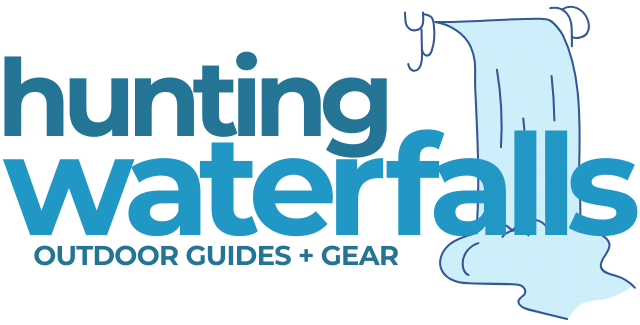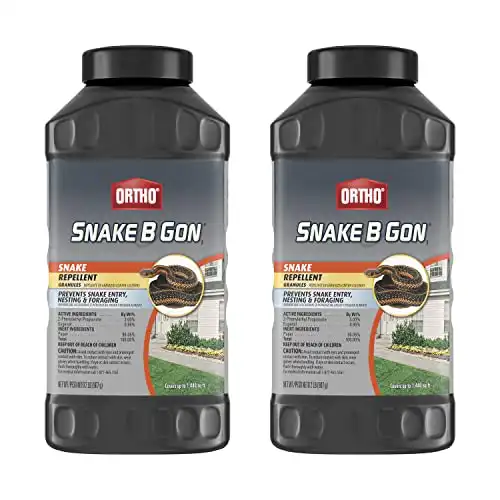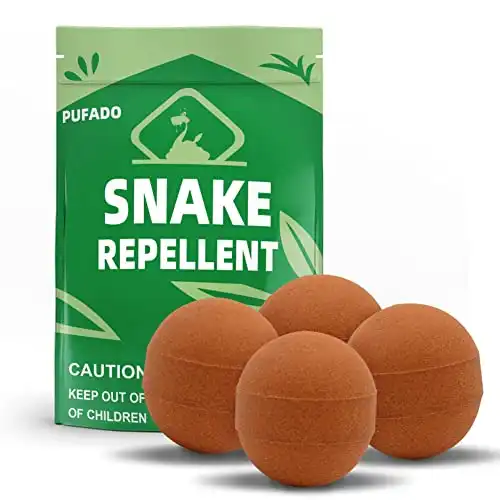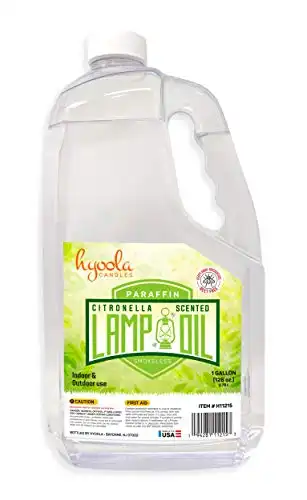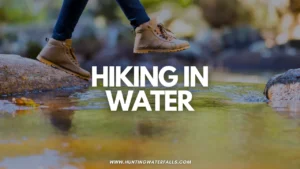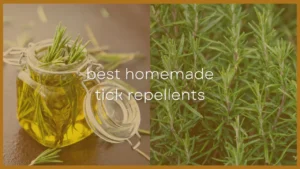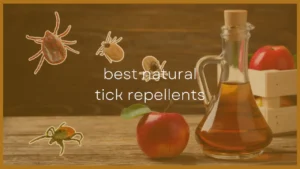When you're in the market for a snake repellent you want to make sure you're getting one that is actually proven to work. Snake repellents do work, but only some of them and you need to get the right ones for them to be effective.
There are a lot of different options out there from commercial snake repellents to essential oils and even electronic ultrasonic snake repellents. It can be a bit overwhelming to know which one you should spend your money on.
There are a lot of great snake repellents out there that do actually work and there are also some that seem to be completely useless and you should avoid.
Snake repellents that actually work include commercial products, physical barriers and habitat adaptation. Essential oils, snake-repelling plants, vinegar and ammonia also work.
Snake repellents that don’t work are any kind of rope, ultrasonic repellents, and mothballs. Gasoline and diesel also aren’t effective.
When trying to repel snakes, it’s important to use methods that are effective and safe for the wildlife and vegetation around you.
Snake Repellents That Work
When seeking a snake repellent that actually works you want to look out for snake repellents that work in the following ways:
- Overwhelm's the snake's sense of smell with smells the snakes don't like
- Provides a physical barrier to stop the snakes getting in
- Alterations to the vegetation/environment to make it unfriendly to snakes
The biggest things to avoid (in my opinion) are the ultrasonic snake repellents, of which I've found no proof of effectiveness, and smells that snakes actually aren't repelled by.
Here are the snake repellents that actually work:
Commercial Snake Repellents
Commercial snake repellents contain strong-smelling ingredients that snakes hate, such as essential oils and sulfur.
The benefit of a commercial snake repellent is they can often last months before needing to be reapplied and they often combine multiple ingredients that snakes don't like to create a potent mixture that is effective at repelling snakes.
When choosing a commercial snake repellent, consider one that’s also safe for vegetation, pets and the surrounding wildlife.
For example, a highly-rated product from Amazon is Snake B Gon which comes in granule form and lasts for 2-3 months after application.
The main ingredient in Snake B Gon is sodium sulfate which snakes hate. But it also contains essential oils as well which keep snakes away. It's safe for plants and pets when used as directed and it's fairly cost effective.
This ready-to-use formula can cover approximately 1,440 sq. ft. per bottle and acts as a snake repellent to prevent them entering the area, nesting and foraging. Has a 'no-stink' formula and is long lasting up to 30 days.
If you’re looking for a commercial snake repellent suitable for camping, consider Pufado Snake Repellent from Amazon because it comes in compact pouches that you can move from one site to the next and pick up and store for next time once you leave your campsite.
Snake Repellents are able to repel copperheads, rattlesnake, cottonmoth and other breeds of snakes. They contain a scent that the snakes hate, providing barrier for your yard and home effectively.
The effect lasts for 2-3 months and is rain resistant and sun proof
Physical Barriers
If you live in an area with a high snake population, it may be worth considering installing a snake fence around your property.
However, for a snake fence to be effective it should be installed a few inches into the ground to prevent snakes from entering your property from underneath. It should also have a fine mesh with holes less than a ¼ inch in diameter (anything smaller will allow baby snakes through).
Ideally you also want snakes to be able to leave the enclosed area if they end up inside it.
Most high-snake population areas have a few snake fence installers who can assist and fences combined with smell repellents can work really well together to heavily discourage snakes from entering your area.
When you’re camping, you can use a portable snake barrier, like the one in the video below, which only takes a few minutes to erect.
The apron around the barrier’s exterior makes it impossible for snakes to climb over, making it a hassle-free option when outdoors.
Habitat Adaptation
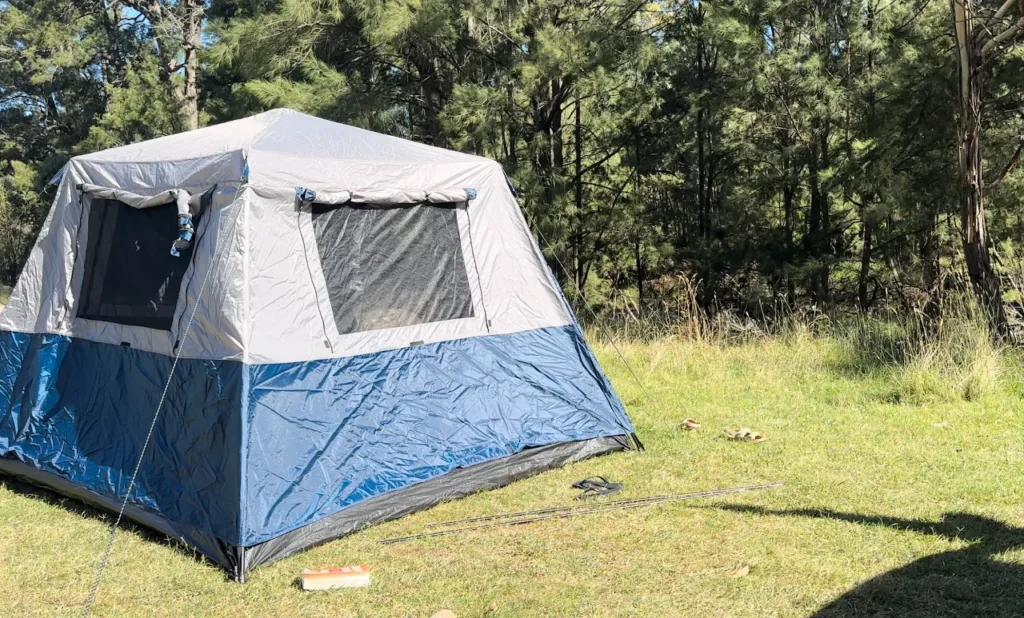
Snakes favor habitat that is wooded and with lots of vegetation where they can hide. If your yard has short grass, weed-free and has no piles of vegetation or wood, snakes will be unlikely to settle there unless they’re hunting.
You can prevent them from hunting in your yard or campsite by reducing rodents. You can do this as follows:
- Keep compost piles covered
- Don’t leave food crumbs lying around
- Sweep up greasy campfire ash as soon as possible
Essential Oils
Essential oils typically have strong scents that can overwhelm a snake’s sensitive sense of smell. See my full list of essential oils that help keep snakes away.
Some examples of essential oils that act as snake repellents include:
- Cinnamon
- Cloves
- Peppermint
- Lemon
- Cedarwood
- Citronella
When camping, you can spray the campsite perimeter with essential oils (or burn citronella oil in a lantern).
At home, you can do the same or pour some into your flower beds.
Snake-Repelling Plants
For a long-term and hands-off snake-repellent solution, consider introducing some plants to your yard that snakes don’t like.
These include:
- Marigolds
- Mother-in-law’s tongue
- Lemongrass
- Mugwort
- Garlic
- Pink agapanthus
- Yucca
- Catnip
- Andrographis paniculata
White Vinegar
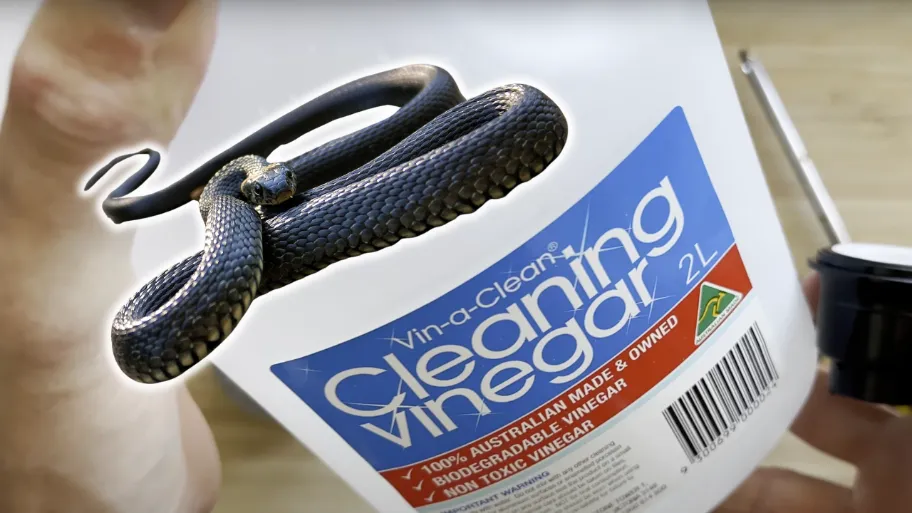
I love white vinegar because it has many uses, including repelling snakes. When camping, I bring a plastic spray bottle of vinegar with me and spray the perimeter of my campsite to keep snakes and bugs away.
The smell of vinegar helps keep the snakes away – however you can't use it everywhere as it can kill plants and turf. Also vinegar needs to be applied daily and after rain in order for it to be effective as the smell can dissipate rather quickly.
It’s also inexpensive and you can buy it from your local supermarket for a couple of dollars a gallon.
Ammonia
With its strong and repulsive odor, ammonia works effectively as a snake deterrent.
Unfortunately, it’s also toxic so you should avoid applying it directly to vegetation.
Before leaving on a camping trip, consider soaking an old rag in ammonia and then placing it in a ziploc bag. Then, when you arrive at your campsite, leave it in a strategic place and open it so the fumes deter snakes.
Snake Repellents That Don’t Work
There are many snake deterrents that are marketed as being effective but have been proven to be useless, a waste of money and sometimes even dangerous.
These include:
Ultrasonic Snake Repellents
Ultrasonic snake repellents emit high-frequency sound waves that are thought to repel snakes. However, many people have tested them and they are pretty ineffective as snake repellents.
I've done a full breakdown of why ultrasonic snake repellents don't work. But in short most snakes can only seem to hear sound in frequencies from 50-1,000 Hz. Ultrasonic sound waves are over 20,000 Hz.
The theory is they make vibrations in the ground that snakes are scared of. But I have not seen any proof of these claims or any proof of the effectiveness of these devices.
Snakes will even curl up around them while they are active and don't seem affected by them at all, let alone deterred.
The YouTube video below proves that ultrasonic snake repellents don’t deter brown snakes at all:
Rope
Some folks think that snakes won’t cross ropes (especially horsehair rope). This is because cowboys in the wild west believed that being surrounded by rope while sleeping would protect them from snakes.
Some people also believe that coarse rope is too scratchy for snakes to climb across but, again, this has been debunked. Coarse rope actually makes it easier for snakes to cross as it gives them more traction.
However, this has long since been disproven, as you can see in the interesting YouTube video below:
The only time a rope could be effective at repelling snakes is if you doused the rope in an effective snake repellent. They wouldn't be afraid of the rope but they would stay away from the smell.
Mothballs
The active ingredient in mothballs is naphthalene, which gives it their trademark musty smell.
However, according to the National Pesticide Information Center and other sources, mothballs don’t affect snakes much and are ineffective.
In addition, mothballs are toxic to humans, animals and wildlife, making it an inhumane way to control snakes and putting your family, pets and garden wildlife at risk.
Diesel and Gasoline
Like mothballs, fuel products such as diesel and gasoline aren’t effective against snakes and are also harmful to the surrounding vegetation and wildlife.
This includes placing liquid gasoline and diesel around your property and campsite and also burning such fuel.
If you’re looking for an effective fuel to repel snakes when camping, consider citronella lamp oil.
You can use it in place of regular fuel in your camping lantern and it has the added benefit of repelling mosquitoes and flies as well.
Hyoola Citronella Lamp Oil from Amazon has a lovely smell and doesn’t produce smoke as it burns.
Burns clean, smells great for you and your guests and helps to keep away unwanted pests. The lamp fuel is odor free for humans but can be smelled by pests - helping to repel them.
